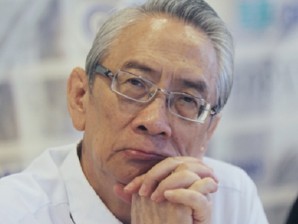Bishops support Mindanao peace agreement, says retired prelate
MANILA, Philippines—Unlike before, the country’s Catholic bishops are supportive of the creation of a Bangsamoro homeland for Muslim Filipinos in Mindanao, a Catholic prelate said Wednesday.
Retired Lingayen-Dagupan Archbishop Oscar Cruz said the bishops, particularly those in Mindanao, were “positive” about the “Framework Agreement” signed by the Aquino administration and the Moro Islamic Liberation Front.
“So far, everyone of them… they’re positive. Now, whether that’s out of courtesy or because of the spirit of the Church being always in favor of peace, I don’t know,” Cruz said in an interview.
At the height of the controversy over the botched Memorandum of Agreement on Ancestral Domain (MOA-AD) between the Arroyo administration and the MILF in 2008, several Catholic bishops were among those who opposed the deal, and the MILF even branded them “hardened spoilers” of peace.
The bishops voiced opposition to the MOA-AD because of the lack of public consultations before it was announced by the Arroyo administration.
Article continues after this advertisementThe present Aquino administration has promised to disclose to the public the provisions of any final deal with the MILF before it is signed.
Article continues after this advertisement“It’s a very good beginning. Although it alienated Nur Misuari, everybody is really hoping for peace,” Cruz said. “This is a start but it still has a long, long way to go. I don’t even know if it can be finished by 2016. I hope it’s done by then.”
However, Cruz noted that the Moro homeland should not have been called Bangsamoro as this means the “Nation of Moros.”
“Moros is a pejorative term in Spanish (in the Philippine context). It means bad people…. If I were a Muslim, I’d feel offended. It should have been Bangsamuslim,” he said.
Supporters of the peace deal say that while the term Moro —the Spanish term for the Moors who ruled Spain for centuries—had pejorative connotations before, Muslim Filipinos in Mindanao have overcome these and have used it to describe their regional identity.
